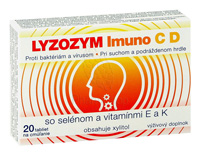SUMMARY
Proprotein convertase subtilisin kexin 9 (PCSK-9) - targeting therapy has arisen as a new line for the treatment of hyperlipidemia. Inclisiran is a double-stranded small RNA molecule that works by blocking the transcription of PCSK-9, leading to a reduction of PCSK9 levels in the hepatocytes, resulting in an increased expression of low-density lipoprotein (LDL) receptors in the hepatocyte membrane and, as a consequence, it reduces the circulation levels of LDL cholesterol (LDL-C).
Compared to the other LDL-C - lowering medications, such as statins, ezetimibe and PCSK-9 inhibitors, inclisiran proposes an infrequent dosing of twice a year, while simultaneously providing a significant reduction of LDL-C. Its prolonged effect offers an advantage against medication non-compliance, which is one of the main causes for not achieving LDL-C goals with standard therapy.
Inclisiran has also proven to have a relatively safe profile with adverse effects occuring in similar frequency as with placebo.
This review (through studies of ORION PROGRAMME) aims to present the current clinical and scientific data pertaining to the role of inclisiran in the management of hypercholesterolemia and treatment of cardiovascular disease.
Key words: PCSK-9, inclisiran, hypercholesterolemia, cardiovascular disease.
Lek Obz, 2022, 71 (2): 76-80
Ján MURÍN 1, Martin WAWRUCH 2
1 I. interná klinika LF UK a UN, Bratislava
2 Ústav farmakológie a klinickej farmakológie LF UK, Bratislava
CITE:
MURÍN J., WAWRUCH M.: Inclisiran in the treatment of hypercholesterolemia. Lek Obz, 2022, 71 (2): 76-80



